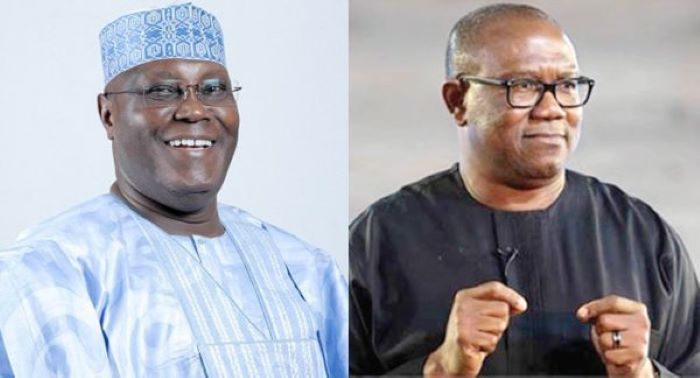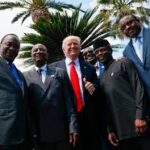In a major political realignment ahead of Nigeria’s 2027 presidential election, opposition leaders Atiku Abubakar and Peter Obi have officially joined the African Democratic Congress (ADC), forming a coalition aimed at unseating President Bola Tinubu and his ruling All Progressives Congress (APC). The move marks one of the most significant shifts in Nigerian politics since the return to civilian rule in 1999, signaling a renewed push to prevent the country from becoming a de facto one-party state.
Abubakar, a former vice president and presidential candidate of the Peoples Democratic Party (PDP), and Obi, former governor of Anambra State and 2023 Labour Party (LP) candidate, have decided to unite under the ADC banner after extensive negotiations. Their new alliance seeks to avoid the mistake of the 2023 election, where their divided support helped Tinubu win with just 37% of the vote. Abubakar garnered 29%, while Obi secured 25%, making them the second and third-place finishers, respectively.
The coalition’s unveiling was led by interim ADC chairman David Mark, a former Senate president, who described the alliance as a strategic move to protect Nigeria’s democracy. The PDP and LP have recently faced internal divisions, which analysts suggest may have been exacerbated by outside interference. By joining forces now, both leaders hope to create a stronger opposition capable of winning the presidency.
Other high-profile figures in the new political formation include former Kaduna governor and ex-Tinubu ally Nasir El-Rufai, as well as Rotimi Amaechi, a powerful former minister. The ADC, while not a new party, benefits from a national presence and a political structure built over the years since its 2005 founding. Its profile is set to rise dramatically with the entry of these political heavyweights.
Although the new coalition originally intended to form a party called the All Democratic Alliance (ADA), concerns over registration delays led them to join the existing ADC instead. Registering a new party in Nigeria requires meeting stringent conditions, including a presence in 24 of the 36 states and a national headquarters in Abuja.
With Abubakar and Obi as the likely frontrunners, speculation is growing about their potential joint ticket. Abubakar, 78, is widely expected to run for president once more, his fifth attempt, with Obi, 63, possibly serving as his vice-presidential candidate. However, this potential pairing is already sparking debate. Obi’s supporters, many of whom propelled his rise in 2023, may resist any move that sees him taking a secondary role. Meanwhile, Abubakar’s backers argue that his experience as a former vice president gives him seniority in the race.
The duo previously ran together in 2019, with Obi as Abubakar’s running mate, but they lost to Muhammadu Buhari. Whether this renewed partnership can overcome past challenges and internal rivalries remains to be seen.
Political analysts are divided on the coalition’s chances in 2027. Ben Kenneth believes the alliance significantly increases the opposition’s chances of defeating Tinubu, citing their combined votes in 2023. However, others like Sani Hamisu argue that incumbency gives Tinubu a strong edge. Historically in Nigeria and much of Africa, sitting presidents seeking re-election rarely lose.
The APC, for its part, has dismissed the new opposition alliance as inconsequential. Acting chairman Ali Bukar Dalori brushed off the development, calling it a media stunt confined to political circles in Abuja. He suggested that the coalition would fade away post-election, just like many others before it.
As Nigeria heads into another election cycle, the formation of this opposition bloc could reshape the political landscape. With rising economic challenges and growing public dissatisfaction, the stage is set for what could be one of the most fiercely contested presidential elections in Nigeria’s democratic history.














Leave a comment